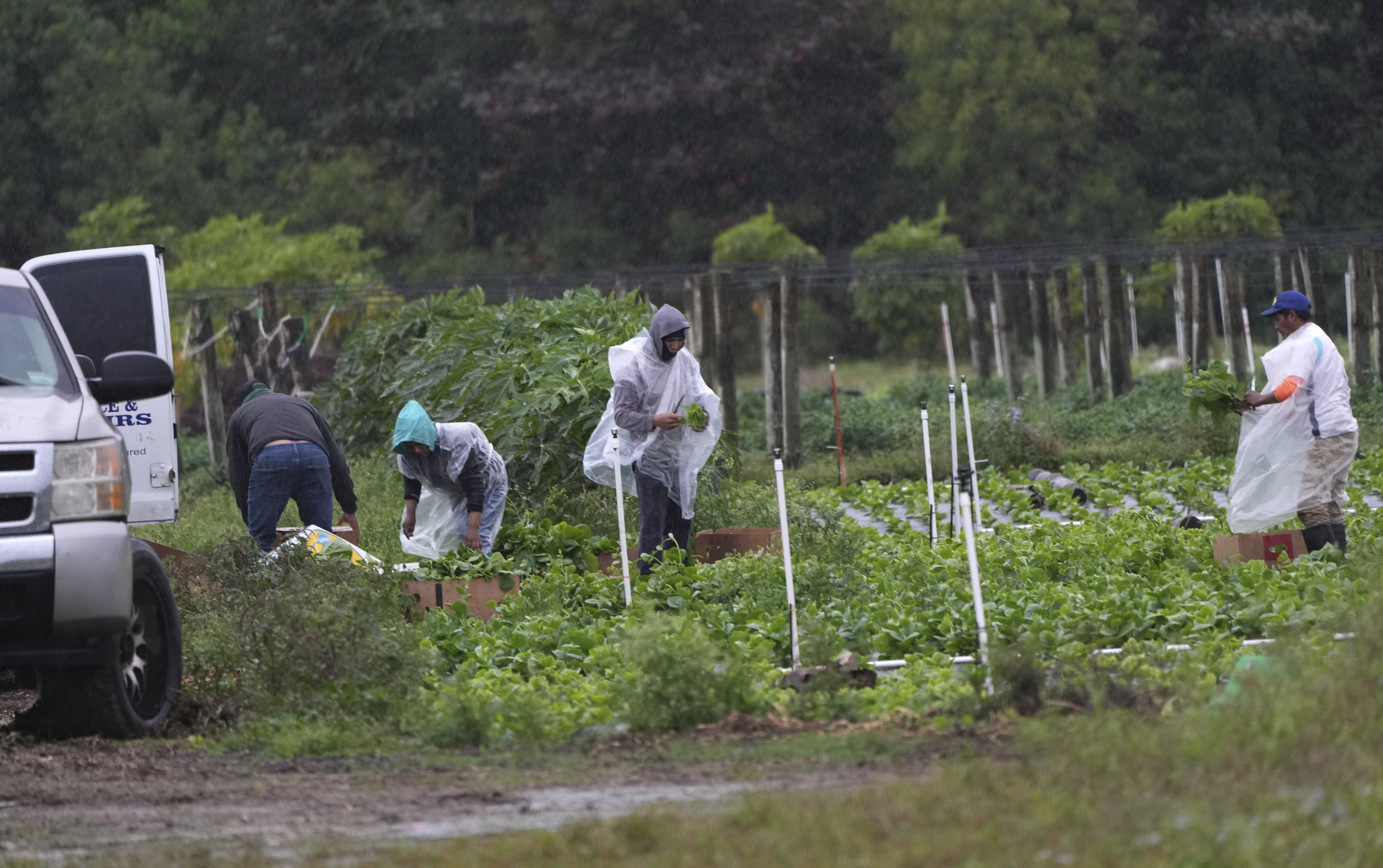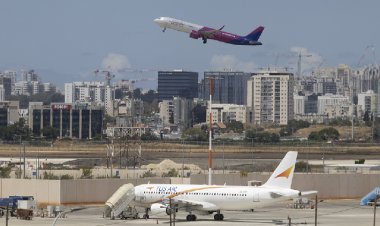DeSantis Criticizes, but Agriculture Sector Claims It Doesn't Depend on Undocumented Foreign Workers
Immigrants, whether documented or undocumented, significantly contribute to the agriculture sector; however, this accounts for only a minor share of their total employment in Florida.

However, the strategy is proving ineffective. Governor Ron DeSantis has expressed that farmers exhibit an “affinity for cheap, illegal foreign labor,” and he has vowed to reject an immigration policy bill from the Republican-led Legislature. This bill would designate Wilton Simpson, the state's agriculture commissioner, as Florida’s primary immigration officer, a role traditionally held by the governor.
Members of Florida's influential agriculture industry, which contributes $270 billion to the economy, assert privately that they primarily employ foreign workers with temporary visas, rather than those who are undocumented.
Officials and lobbyists familiar with the situation have opted to remain off the record, wishing to avoid complicating their standing in the ongoing dispute. “This isn’t about us,” remarked one Republican agricultural lobbyist. “[We’re] just keeping our head from between the dog and the fire hydrant.”
“Florida’s agriculture industry has for decades been focused on securing a stable legal workforce that can support the businesses that grow and harvest the nation’s food supply,” explained a long-term ally in the industry. “Weighing into this debate does not accomplish that.”
Former Republican legislator Rick Roth, who cultivates vegetables, sugar cane, and rice in Palm Beach County, indicated that while farmers are in favor of immigration reform, they prefer it to be non-disruptive.
“We’re not really taking on the governor — that’s not the position,” he said. “The position is do we want a user-friendly immigration system? The answer is yes. We’re not sure the governor is going to give it to us.”
In response, DeSantis spokesperson Jeremy Redfern referenced the governor's remarks last week in Palm Beach County: “Nobody elected the commissioner of agriculture to do the immigration stuff.”
DeSantis won the governorship in 2018, defeating Agriculture Commissioner Adam Putnam in the GOP primary, during which DeSantis labeled him “the errand boy for U.S. Sugar.”
He has advocated for lowering water levels in Lake Okeechobee, a stance unpopular among agricultural interests, and he vetoed a bill last year, FL SB 1082, supported by farm groups. This bill would have restricted local governments from regulating farmworker housing. DeSantis justified his veto by stating that it could “pave the way for housing of illegal alien workers.”
While immigrants, both documented and undocumented, significantly contribute to the agriculture sector, they represent a minor percentage of overall employment in Florida.
The Pew Research Center estimated that Florida had over 1 million unauthorized immigrants in 2022. However, agriculture is not among the top five industries employing them.
In 2019, 24 percent of unauthorized workers in Florida were employed in construction, 17 percent in professional and administrative services, and 15 percent in accommmodations, food services, entertainment, arts, and recreation, according to the Migration Policy Institute.
For both documented and undocumented immigrants, those employed in agriculture, forestry, fishing, hunting, and mining comprised just 1.2 percent of the workforce as of 2022.
Nonetheless, immigrants accounted for 42 percent of the workforce in that category, the highest of any industry sector in the state.
DeSantis remarked that placing the agriculture commissioner in charge of immigration implies “the fix is in.”
“Let’s just be honest with ourselves — one of the magnets from illegal immigration is illegal low wage farm labor,” DeSantis stated last week at a roundtable in Palm Beach. “Now that doesn’t mean every farm in Florida, or even most. But we know that’s one of the magnets.”
A spokesperson for the Florida Department of Agriculture and Consumer Services did not respond to requests for comment. However, Simpson, a former Republican Senate president with a sometimes adversarial relationship with DeSantis, pushed back against the governor's sentiments.
After DeSantis tweeted that appointing Simpson, an egg farmer, to oversee immigration was akin to placing the “fox guarding the henhouse,” Simpson replied, “I’m not the one who opposed and ran against President Trump.”
“The governor’s routine attacks on farmers don’t sit well here in Florida — and apparently not with folks across the country either,” Simpson added on X.
Industry supporters aiming to remain neutral in the ongoing clash pointed to a White House official's recent assertions as well as DeSantis’s remarks.
While nearly 70 percent of the nation’s farm workers are foreign-born, agricultural representatives cited White House deputy chief of staff Stephen Miller's claim that only 1 percent of the unauthorized workers in the country engage in agricultural work.
“The illegal aliens that Joe Biden brought into our country are not — full stop — doing farm work,” Miller stated on CNN, adding, “They are in our cities collecting welfare.”
DeSantis earlier this month appeared to downplay the influence of undocumented workers within Florida's agricultural economy, asserting that the state has been proactive in addressing illegal immigration.
“First of all, that’s offensive to say Florida is just based on illegal immigration,” he commented during a press conference in Winter Haven. “And people will say, like, there will be these farm workers, and they’ll say ‘See!’ And then you go and these people have farm visas to work here.”
A former legislator with ties to agriculture reiterated the industry's stance on not depending on illegal foreign labor.
“It’s bizarre — I don’t see how there is any profit in it for the governor,” the former legislator, who requested anonymity for candidness, remarked. “If his goal is to be president, ag not only is an enormous part of Florida’s economy but it’s still an enormous part of the vote share in the middle of America.”
Florida Democratic Party Chair Nikki Fried, who clashed with DeSantis during her tenure as agriculture commissioner from 2019 to 2023, noted that the governor has consistently criticized the agricultural sector over the past six years.
She speculated that these critiques might stem from his 2018 GOP primary contest against Putnam or from their interactions during her tenure on the Cabinet in his first term.
“But regardless of his reasons, going after the people who are putting food on our plate is outrageous as a governor whose economy relies on agriculture,” Fried asserted.
Redfern, the governor’s press secretary, responded to her earlier remarks by stating, “Nobody even knows who Nikki Fried is.”
Ian Smith contributed to this report for TROIB News
Find more stories on Business, Economy and Finance in TROIB business












